Please note
This is our all-in-one roundup reviewing every Avira consumer security solution for 2021. On this page, after our brief intro, you’ll find
(a) a full evaluation of the entry-level Avira Antivirus Pro, along with our reviews of the additional features incorporated with the rest of the range:
(b) Avira Internet Security, and
(c) the top-end package Avira Prime, and
(d) a quick look at Avira Free.
You can jump to the reviews of those individual products by clicking on the links in the bar at the top of this page, but bear in mind that this article is really designed to be read all the way through, as the features of Avira Antivirus Pro are also present in the higher-level security suites, of course.
German security vendor Avira's consumer range starts with Avira Free Antivirus, an interesting product with a surprisingly lengthy feature list: antivirus, malicious URL filtering, PC optimization, VPN and more.
Be sure to check the small print, though. While the free product has a great antivirus engine, significant limitations include no scanning of downloads or email attachments, URL filtering via browser extensions only, and no customer support beyond what you can find on the website.
Some of the extras aren't as impressive as they sound, either. The free version of the VPN, for example, limits you to a near useless 500MB a month, barely enough to run a single online speed test.
Upgrading to Avira Antivirus Pro gets you scanning of downloads, torrents and cloud storage, an extra layer of ransomware protection, system-wide URL filtering and 'Premium' custom support. Pricing looks a fraction high at $45 for a one device, one-year license, but that's mostly because there's no introductory discount. There's better value as you extend your subscription, so for instance a three device, one-year license is a reasonable $58. (Bitdefender Antivirus Plus 2020 is $30 for year one, but $60 on renewal.)
Avira Internet Security adds automatic detection and updating for missing security patches, and Avira's own password manager. It's priced from $58 for a one-year, one-device license, or $71 to cover three devices. As with Antivirus Pro, there's no opening discount, and it looks a little overpriced for the feature you're getting.
Avira Prime offers the best value in the range, with its annual five-device license costing $100. That gets you everything in Internet Security, plus premium Android and iOS apps, Avira's hugely powerful PC speedup suite, and, crucially, unlimited use of Avira's Phantom VPN Pro. It's far from the best VPN we've seen (check out our full review here) but it covers the basics, and is worth $78 all on its own.
Overall, if you can live with Avira Free's limits or use Prime's VPN, these look like the pick of the range. Avira Antivirus Pro and Internet Security can't quite compete.
If you can't make up your mind, or you're just not ready to commit, Avira Prime has a 30-day trial, and all products are available on a monthly subscription (a single device is priced at $5 for Antivirus Pro, $6 for Internet Security, $10 for Prime.) That's an unusual but welcome touch which gives time to figure out if the suite works for you. The Prime plan is good value, too - you can pay more than $10 for a monthly VPN plan alone from many providers.
Avira Antivirus Pro
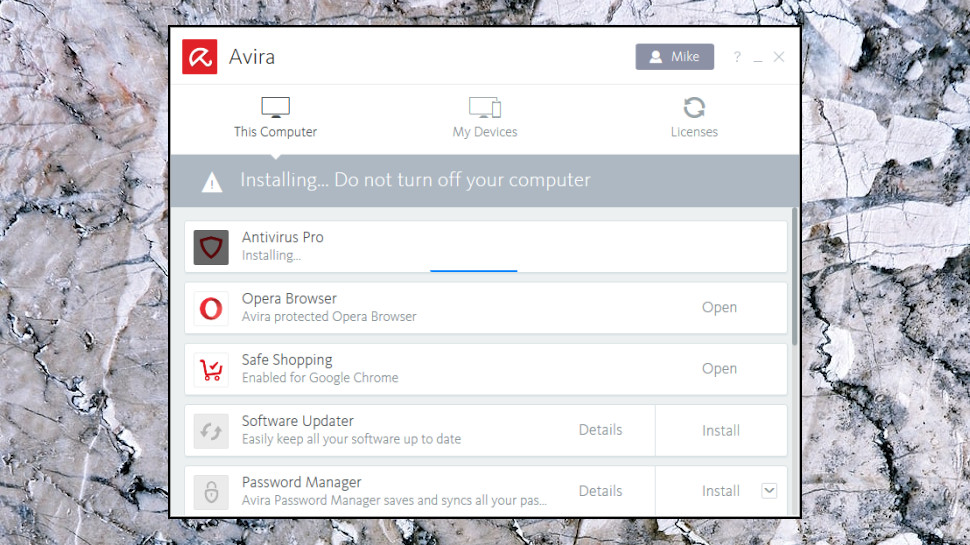
Avira Antivirus Pro installed easily for us, with no technical hassles of any kind, not even a 'reboot now!' demand when it was all over.
The package added 13 background processes to our test system, a little more than most. Extra security load can be a drag on system speed, and AV-Comparatives' October 2020 Performance test found Avira had a mid-range impact on performance, placing it 10th out of 17 (first is best.)
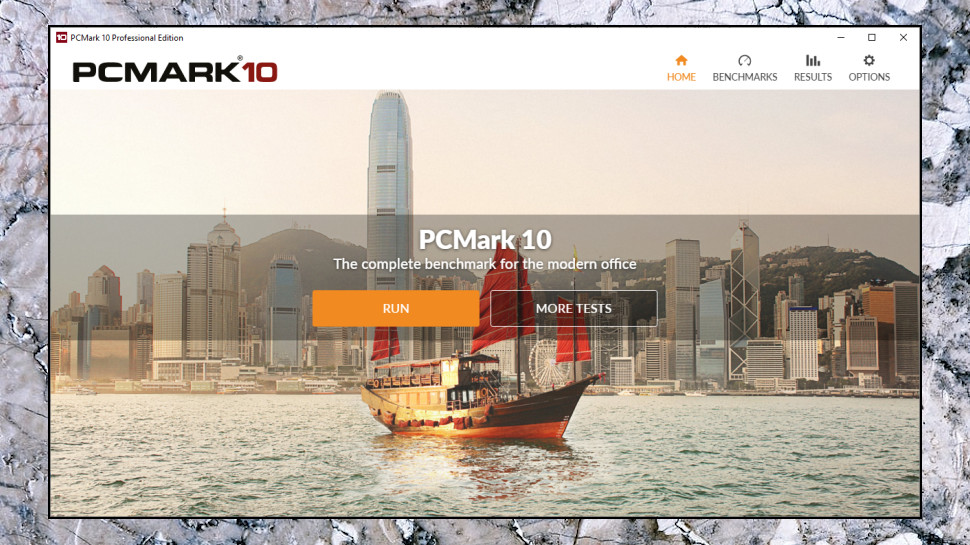
To get a feel for what this means in real life, we ran PCMark Professional before and after installing Avira Antivirus Pro, and found our score fell by 1.7%. That's fractionally worse than some competing antivirus products - Kaspersky cut our performance by 0.6%, Bitdefender 1% - but you're unlikely to notice any difference.
We tried terminating the processes, stopping services, deleting files and using various other tricks to simulate how malware might try to disable an antivirus. As in our last review, we had some limited success in closing processes, enough to disrupt the interface and basic user operations. Avira's engine remained active and continued to protect us, though, so we're not treating this as a significant black mark.
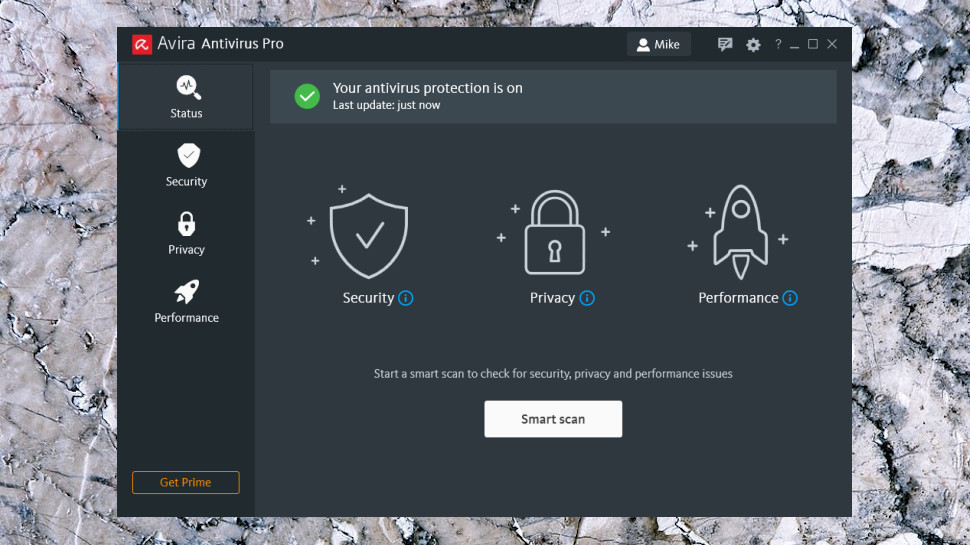
Scanning
Avira has revamped its interface since our last review. Out goes the tired old design, in comes a dark themed and simplified dashboard with little more than a status indicator and a Smart Scan button to run some instant system checks.
There's still plenty of functionality, though, and choosing Security, Privacy or Performance on the left-hand sidebar gives you access to everything you need: scans, firewall, the Software Updater, VPN, optimisation tools and more.
We tapped the Smart Scan button on the dashboard. This looks for malware, network issues, privacy and performance problems (tracking cookies, junk files, startup apps, orphaned Registry entires), yet still took less than a minute on our test system.
A Quick Scan option runs a more conventional check on system files, running processes and the Registry. It doesn't cover a lot, but it's likely to catch most common threats, and it only took 60 seconds for us.
Choosing a custom scan in most antivirus apps results in a prompt asking you which drive or folder you'd like to check. Avira gives you many more options, with predefined scans to check your Documents folder, the Windows folders, removable drives, active processes and more. You can also save new custom scans to check specific drives and folders, making it easier to recall them later.
You're not able to define how these custom scans work (file types to check or ignore, detection methods to use, and so on), as you can with Avast and some others. Avira's approach is an improvement on what we usually see, though, and manages to give more scanning control to expert users, while keeping everything very easy to use for everyone else.
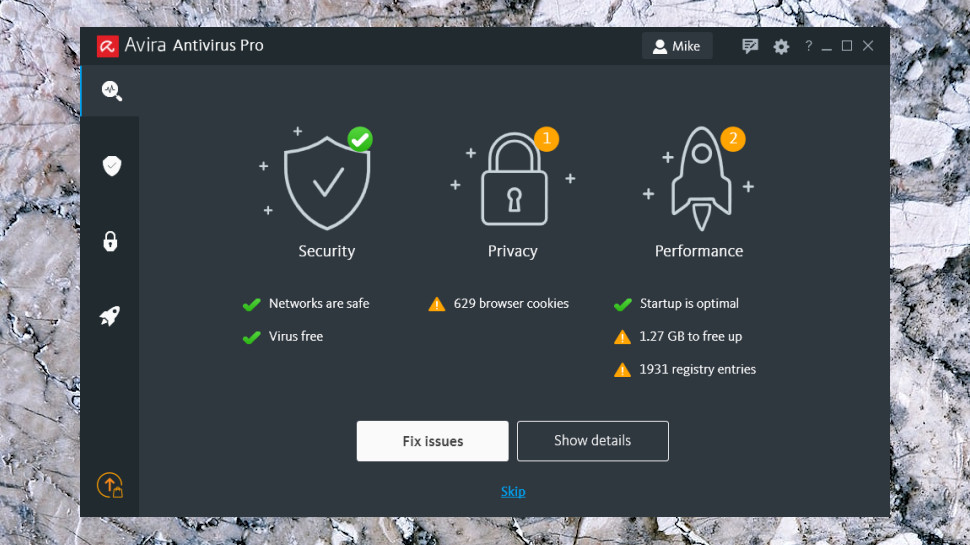
You can also run a full system scan, or check selected items from Explorer's right-click menu. We found this took 28 minutes to scan 50GB of test data, a good mid-range time (Kaspersky took 29 minutes, but Bitdefender took 39.) But other apps make more effort to optimise subsequent scans, for example only checking new or changed files, and that makes real difference. Avira's second scan of our test data took 24:41, for instance, while Kaspersky's was just 2:50, and Bitdefender's only 27 seconds.
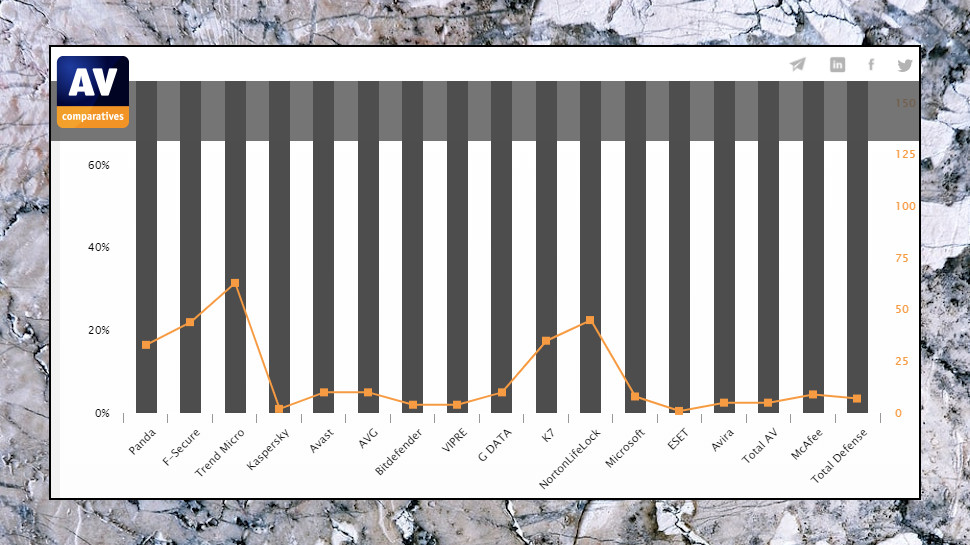
Protection
AV-Comparatives' Real-World Protection Test regularly checks top antivirus engines against the very latest malware threats.
The July-October 2020 summary report saw Avira ranked a disappointing 14th out of 17, with 99.3% protection (Panda, F-Secure and Trend Micro all scored 100%.)
AV-Test's October 2020 Home User Windows report also reported below par results, with Avira placed 19th out of 22. (This doesn't make it a 'bad' product - its worst result was 'only' blocking 98.9% of zero day threats in one test - but it just happens that most of the competition did better.)
SE-Labs 2020 Q3 Home Anti-Malware Testing report delivered the best verdict, though still decidedly mid-range, with Avira Free Security Suite managing 7th out of 14.
Avira also includes an anti-phishing layer to keep you away from dangerous sites. AV-Comparatives Anti-Phishing Certification Test 2020 found it blocked a capable 91%, placing it third in a field of six. (The others were Trend Micro, 95%; Bitdefender, 94%; Kaspersky, 90%; Avast and AVG, 86%.)
As Avira Antivirus Pro claims to have top-quality ransomware detection, we decided to pit the program against our own custom ransomware simulator. This is very basic and doesn't use any stealthy malware tricks, but as we coded it ourselves, we knew it wouldn't be in Avira's signature database. The only way the package could detect our threat was by recognizing its behavior.
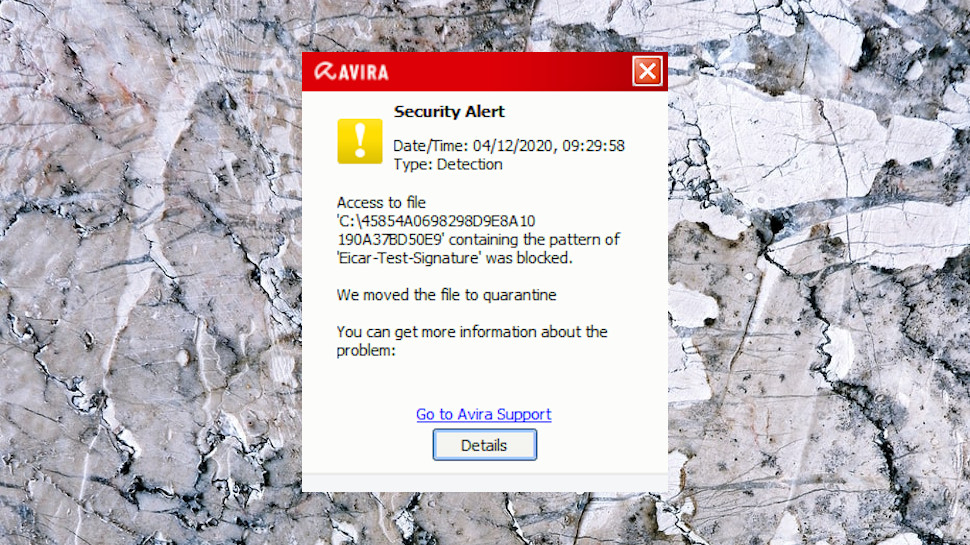
We launched our ransomware simulator, then watched as it successfully spidered through multiple folders in our test folder tree, encrypting more than 6,000 documents and data files, without Avira Antivirus Pro raising any alarm or making any attempt to spot it.
You could just-about argue that this was the correct decision. After all, our simulator is malware-like, but not genuine malware, so letting it run makes sense. And we also know from test results that Avira does block the huge majority of real brand-new threats.
Still, we prefer the more cautious approach taken by Kaspersky, Bitdefender and Trend Micro. In their last reviews, the apps not only managed to detect and kill our test software, they also recovered the handful of files our simulator managed to encrypt.
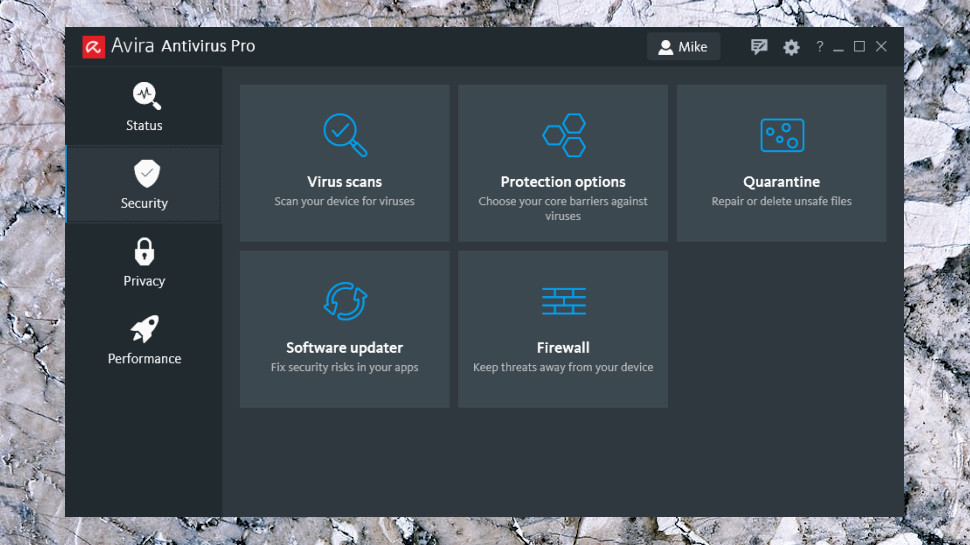
Features
Browse Avira's Modules list and you'll find an On/ Off switch for a firewall, but don't get your hopes up, this isn't how it looks. There's no extra network protection here, it's just an alternative interface for the Windows firewall.
This doesn't do very much, beyond make it fractionally easier to turn the firewall on or off, and tweak a handful of settings for your network profiles. Accessing any of the more features - setting application rules, for instance - just opens the regular Windows firewall dialogs. If you really need to take control of the Windows firewall, you'd be better off learning to find your way around the standard interface.
The new interface integrates many of Avira' other free tools, and makes them easier to try out than previously (no need to run each installer separately, for instance.)
Some of these are cut-down versions of other Avira products, and available separately for free, whether you buy Avira Antivirus Pro or not. Still, many are genuinely useful.
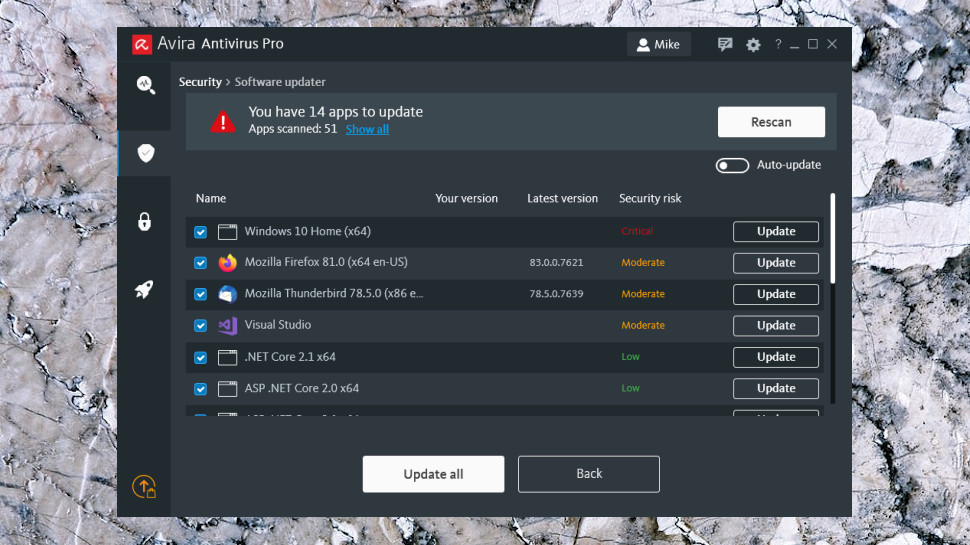
Kaspersky Anti-Virus has a tool to check for missing software patches, for instance, but leaves you to decide what to do with them. Avira's Software Updater not only finds more updates, it can also install them automatically.
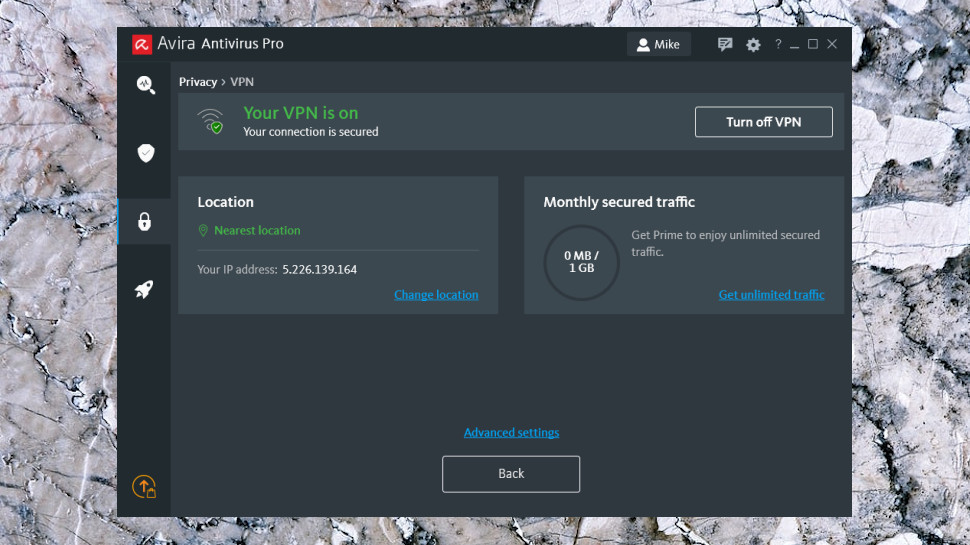
The VPN is the limited free version of Avira's Phantom VPN. It's now properly integrated with the Antivirus Pro interface rather than simply launching the stand-alone client, and the data allowance is up to 1GB a month from the previous 500MB, but it still won't take you very far.
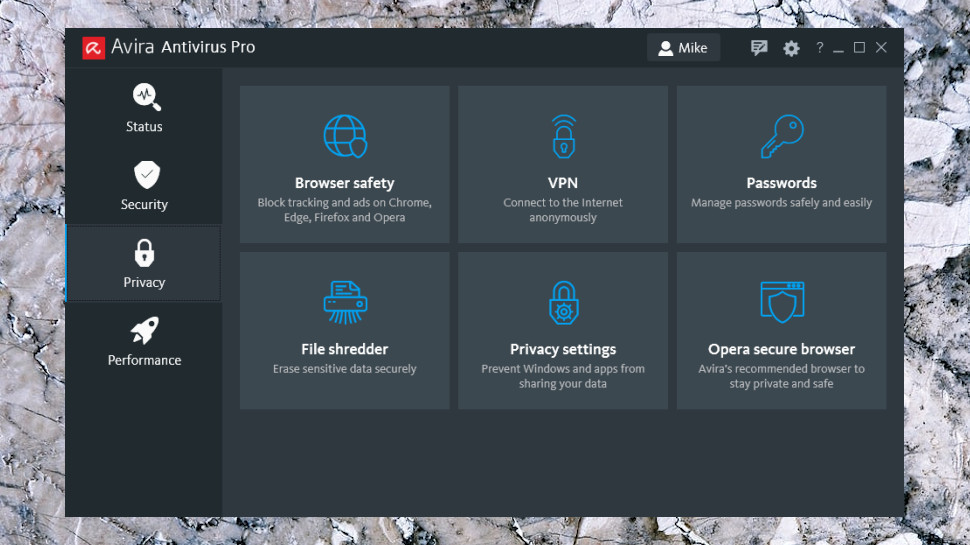
Privacy tools include an ad and tracker-blocking extension for Chrome, Edge, Firefox and Opera. A file shredder securely deletes confidential files; a simple password manager stores your logins and syncs them across your devices, and a Privacy Settings module helps you choose more secure Windows settings. There's also a 'secure browser', although this isn't some custom-built isolated browser like Bitdefender's SafePay: it's just a standard version of Opera.
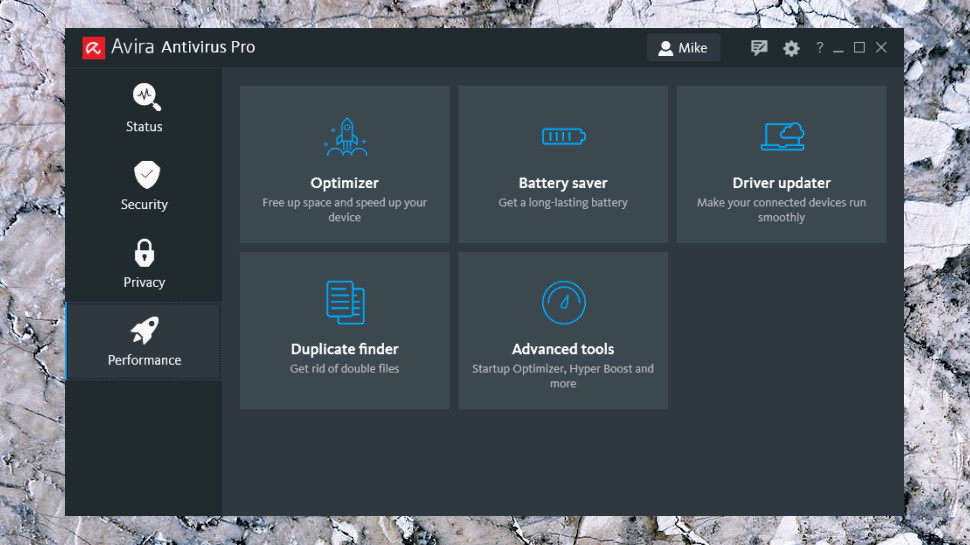
There's also a surprisingly comprehensive Performance section, with tools to free up drive space, optimise boot times, find and remove broken Registry items, delete duplicate files, update drivers, and more.
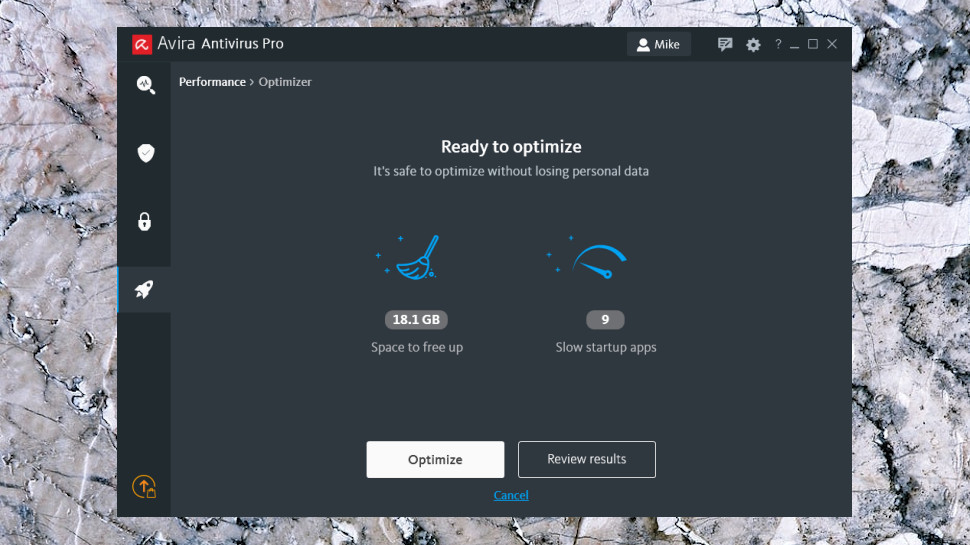
As this is the free build, it only handles the most common cleanup and optimization tasks. But that's enough to be useful, we're glad to see it here, and if you need to know more, we'll be talking about the full System Speedup tool below.
Final verdict
The new Avira Antivirus Pro interface does a great job of integrating its many features. You can install many of them separately for free, though, and current protection results from the labs are mid-range at best.
Avira Internet Security
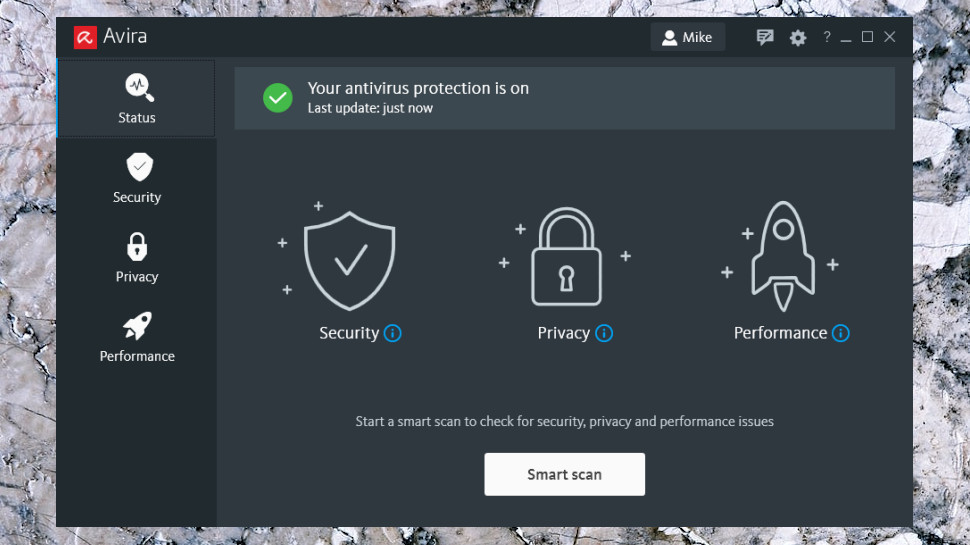
Avira Internet Security is a bundle of products which includes Avira Antivirus Pro, Software Updater Pro and Password Manager Pro.
Avira's Software Updater Pro is an easy-to-use patch manager which regularly checks for missing application updates, and can automatically install whatever it finds. There's nothing for you to download, and you won't see any installer apps.
Avira's Password Manager Pro generates secure passwords, automatically fills in login forms for you, and syncs new credentials across all your devices.
If you're used to security suites that come with a firewall, parental controls, maybe a spam filter, this could seem a little underpowered.
But if patch management and passwords are top of your priority list, it might be worth giving the suite a closer look.
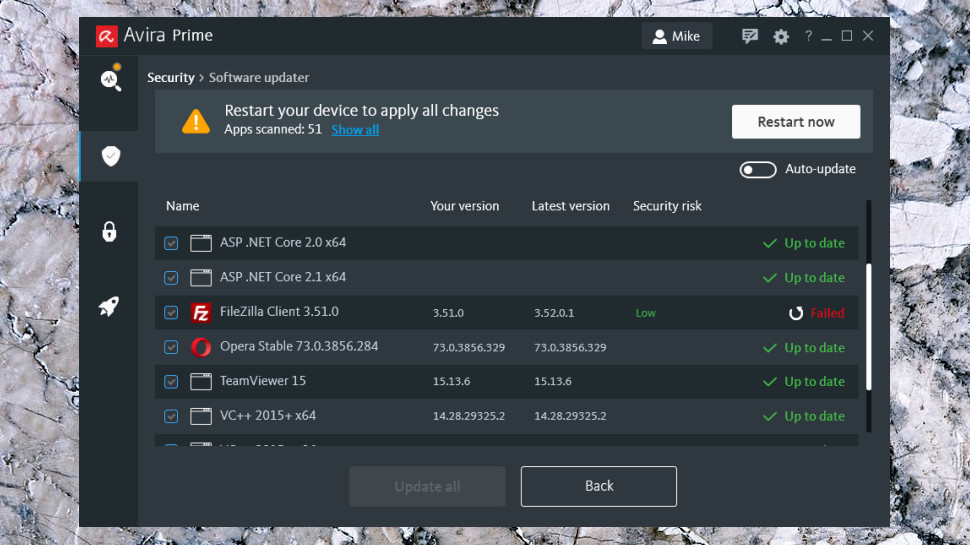
Software Updater Pro
Avira's Software Updater Pro claims it automatically updates 'over 150 programs', which is less than many competitors. The freeware Patch My PC updates more than 300, others can handle many more. Software Updater's list is well chosen, though, and covers some very important apps and components: .NET, Acrobat Reader, CCleaner, Google Chrome, Firefox, IrfanView, Java, Opera, Paint.net, TeamViewer, VLC Media Player, and updates for Windows and assorted Windows components and layers.
The package mostly worked as advertised for us. We installed some old versions of supported apps, Software Updater found a decent 11 updates, and silently downloaded and installed 10. It couldn't automatically update FileZilla, the same problem we saw in the last review. Still, just having an update alert was useful, and Software Updater also gave us a link to the FileZilla site where we could download and install it ourselves.
Software Updater can check for driver updates, too, although that's much less useful. If it told you that your NVVHCI Enumerator driver was out of date, for instance, what would you think? Could that be causing problems, should you update it? Or is it the latest version that's compatible with some other part of your system, and updating it would break your PC to the point it wouldn't even boot?
It's okay, we don't have the faintest idea, either. Software Updater's driver side might still be useful in that it could highlight a missing update which you can manually explore further, but that's about it. The vast majority of people will be better off leaving driver support to Windows Update.
We have some issues with Software Updater, then, but it's better than the patch managers you'll get bundled with most security suites. Most users will get some value from it, and if that's not you, you're an expert who hates this kind of tool, no problem - you can use it for manual checks only (no automatic updates at all), or just uninstall the module and focus on the rest of the suite.
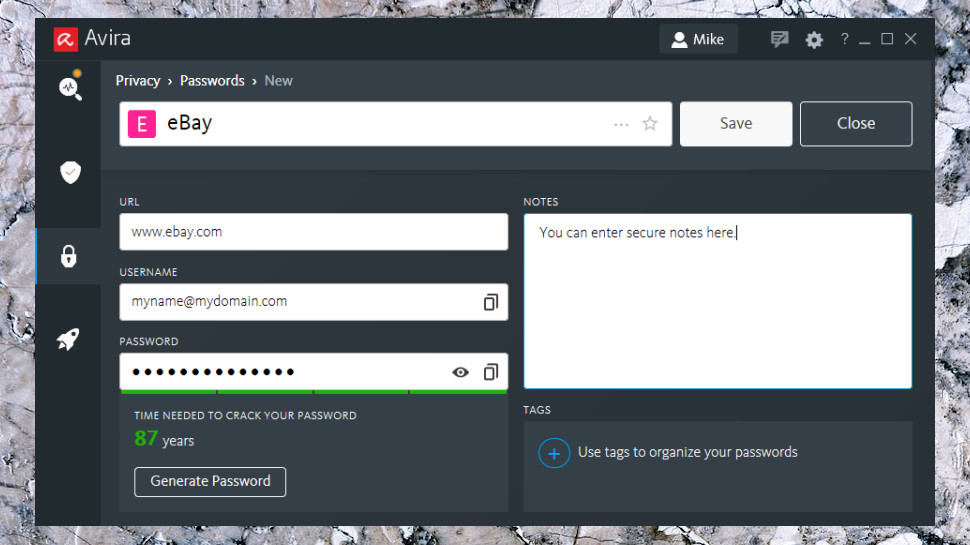
Avira Password Manager Pro
Avira Password Manager Pro is easy to set up just about anywhere. Install the Windows, Mac, Android or iOS apps, or the Chrome, Firefox, Edge or Opera extensions, import any existing logins and you're ready to go.
The package includes a secure password generator, saves new credentials as they're entered and can automatically complete login forms when you return.
The latest version supports logins and credit cards, but that's it. There's no support for saving names, addresses or any other identity information.
Avira Password Manager Pro does have some advanced features. You can access your passwords with touch and face recognition, for instance, if they're supported on your device. Two-factor authentication enables logging in via a security code sent to your phone. And the app can alert you to weak or reused passwords, or raise a notification if one of your accounts might have been hacked.
If you don't have another password manager, Avira's offering will simplify your logins, and could help make your accounts far more secure.
The service can't begin to match the best of the competition, though, and if you're after real password management power, you should probably look elsewhere.
Final verdict
Overall, Avira Internet Security is a lot like Antivirus Pro - it's a decent package, but just doesn't have enough functions or features for us to recommend it ahead of the competition.
If you're after a more traditional security suite, particularly with a firewall and extra layers of network protection, you'll be better off elsewhere.
But if you like Avira, and are just not so interested in Software Updater and Password Manager, keep reading. Avira's high-end Prime bundle gives you a lot of more general-purpose power for a very fair price.
Avira Prime
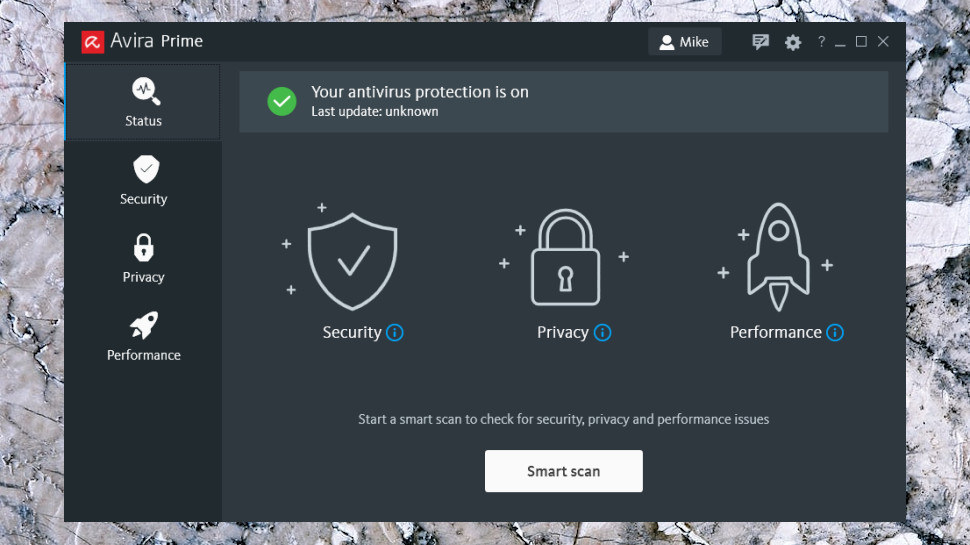
Top of Avira's consumer range is Avira Prime, a powerful bundle which comes crammed with essential functions and features.
The key security benefits are access to Avira's premium Android and iOS apps, and a license covering up to five devices.
The most valuable extra is full access to Avira's Phantom VPN Pro. And we do mean full access, with none of the data limits or user restrictions you'll often get with other security suite VPNs. The license enables using the VPN as much as you like, on as many devices as you need, just as though you'd purchased it separately (which would normally cost $10 a month, all on its own.)
Experienced Windows users will also appreciate Avira's System Speedup Pro, a very full-featured PC optimization tool. Forget the feeble apps you've seen in other suites, which often do less than Windows' own Disk Cleanup - this outperforms many stand-alone specialist PC optimizers.
The suite is great value at just $100 for a five device, one-year license. If you'll make regular use of the VPN, that's one of the best deals you'll find anywhere, but even if you don't, Prime has more than enough power to justify a closer look. There's a 30-day trial available if you'd like to find out more, and optional monthly billing (just $9.99) means you can try the services for longer with no real commitment.
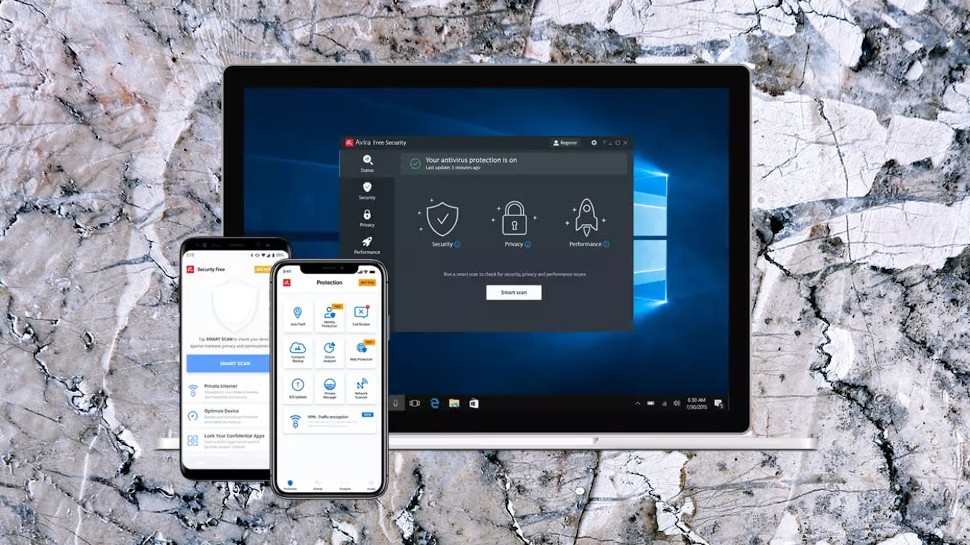
Mobile apps
Avira's free Android and iOS apps cover the antivirus basics and more (there's a new call blocker, for instance), but upgrading to Avira Prime gets you the full commercial editions with some valuable extras.
The Android app gains automatic blocking of malicious websites, for instance, along with more frequent updates to protect you from the very latest threats.
Webcam and microphone protection ensure apps can't record you without authorization.
You're able to lock your most sensitive apps with a PIN code, and there's free customer support if you run into any problems.
Avira's iOS app is a bundle of more general security tools, including anti-theft, a call blocker, contents backup, network scanner and more. It might be worth having, depending on your needs, but it's not essential.
This isn't the longest list of upgrade benefits we've seen, but there's another major addition which applies to mobile devices, too. And it's coming up next.
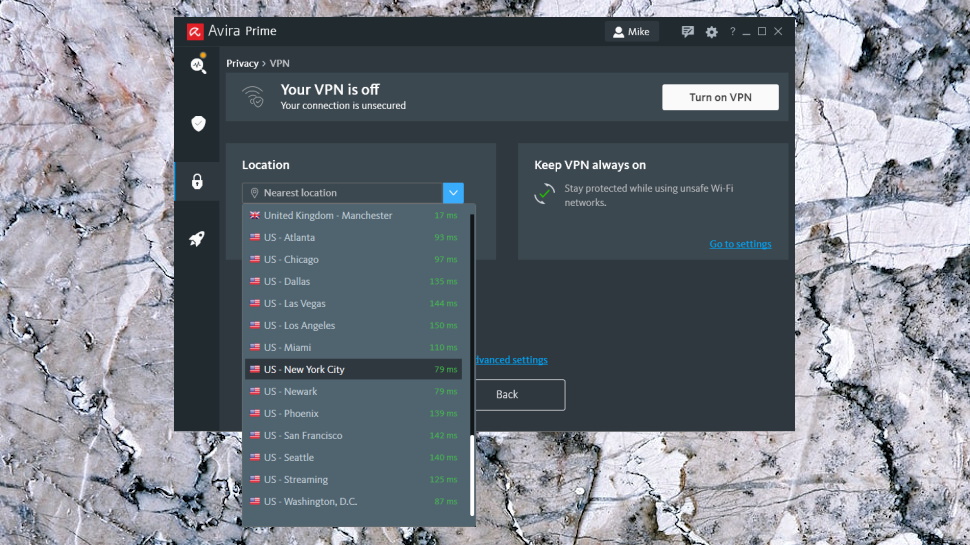
Phantom VPN Pro
Avira Phantom VPN Pro doesn't have a market-leading feature list, but there's still a lot to like: 50+ locations including multiple US cities, P2P support, a kill switch (on Windows), malicious URL blocking, optional automatic connection when you access a wireless network, mobile and desktop apps (Windows, Android, iOS, Mac) and a Chrome extension, too.
Although the full Avira Prime package covers up to five devices, Phantom VPN Pro covers as many as you need, an unusually generous touch.
The Windows app delivers on the basics. It's easy to use (choose a location, click Connect), performance is reasonable, we couldn't find any DNS leaks, the kill switch correctly blocked our internet connection when we forcibly dropped the VPN.
The service couldn't unblock BBC iPlayer or Amazon Prime Video, but it got us into US Netflix and Amazon Prime Video, a better result than you'll get with many VPN providers.
Phantom VPN Pro doesn't offer much low-level control. You can't change or tweak its choice of protocol, for instance, and you can't manually set up the service on other devices.
It's still a decent service, though, which does everything most users will need, and adds a huge amount of value to the suite.
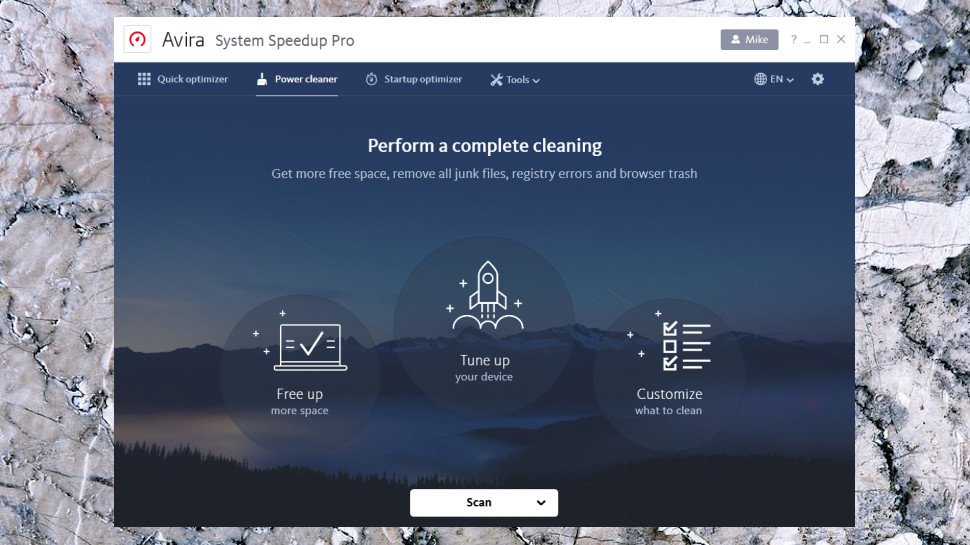
System Speedup Pro
Security suites often claim to include some kind of device optimization, but usually this means little more than deleting a few temporary files, something PC users can already do for free with Windows' own Disk Cleanup (often more effectively, too.)
Avira's System Speedup Pro is a rare exception, a tool with so many features and options that you might want to use it stand-alone.
Its cleanup tools check areas all across your PC, for instance: the Recycle bin, temporary files, browser junk, third-party leftovers, surplus reports and logs, even invalid Registry entries. This found more files to free up than CCleaner on our test system, a real achievement.
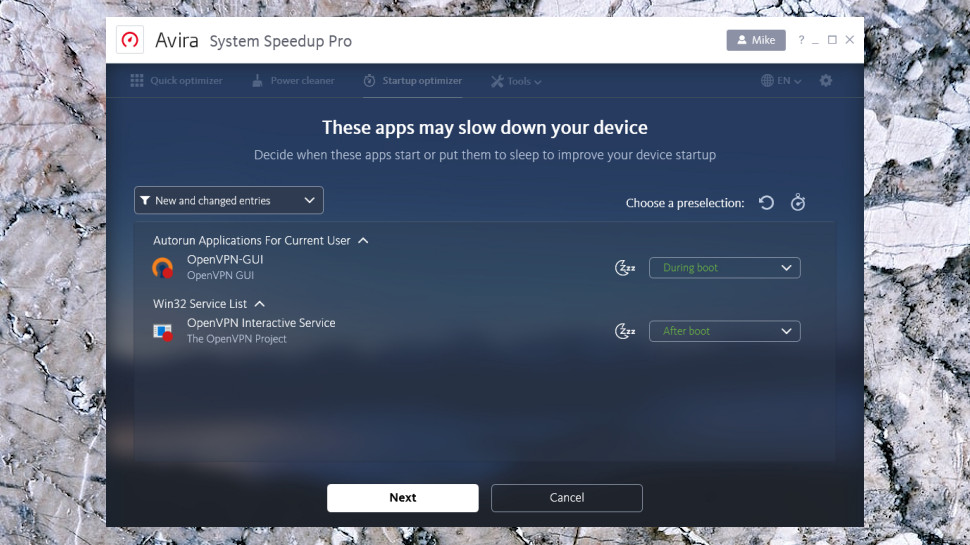
Then there's the Startup Optimizer. Most tools just display a list of programs configured to start when Windows loads, and enables removing any you don't need. Speedup Pro comes with its own boot tracker which measures boot times and analyses apps to show you which has the most impact. And it goes further, with the ability to raise a notification if a system change increases your boot time, or an automatic optimization feature which keeps your system running smoothly at all times.
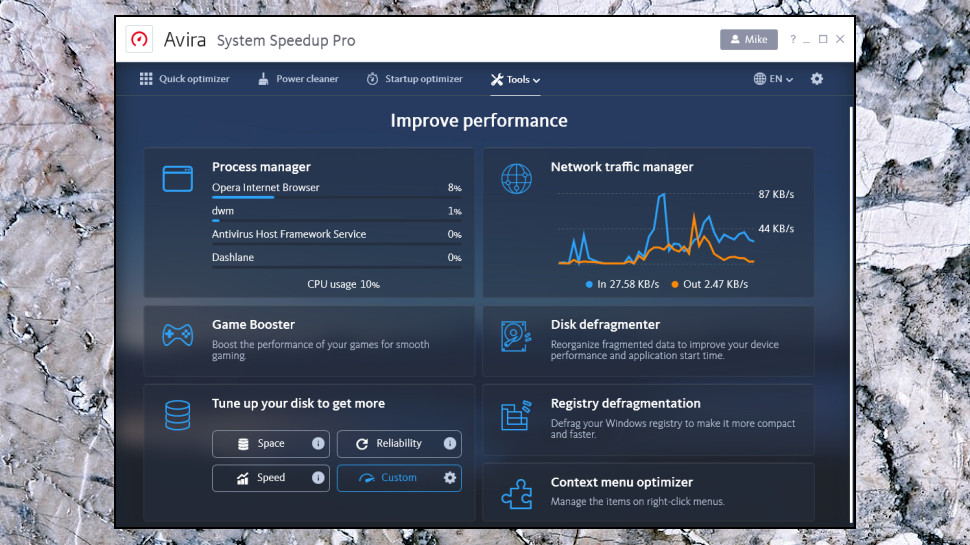
That's good, but Avira's just getting started. Browse the menus and you'll find a duplicate file finder, a software uninstaller, an undelete tool, file shredder, disk wiping, file encryption, a Windows service manager, disk doctor, a +Windows troubleshooting app, game booster, Registry and disk defraggers, a context menu optimizer, power management tools and more.
All system optimizers come with some risks, and non-technical users, or anyone looking for a quiet life, should probably leave System Speedup Pro alone.
If you've any Windows experience, though, and you appreciate the value of cleanup tools such as CCleaner, you'll find a huge amount to explore here. System Speedup Pro is an excellent PC maintenance tool which not only tramples all over the underpowered offerings in other security suites, but it outperforms many stand-alone PC optimizers, too.
In conclusion, Avira Prime leaves out many of the features you might expect in a security suite - there's no firewall, no spam filter, no parental controls, no backup - and if they're high on your priority list, that's going to be a problem.
The top-rated antivirus engine is a major plus, though, and if you'll use the bundled VPN, speedup suite and other tools, Prime offers great value. Give it a try.
Avira Free Antivirus
Avira Free Security is a surprisingly capable free security suite which uses multiple techniques and technologies to keep you safe from even the very latest malware.
Web-related features include blocking of malicious and phishing sites via Chrome, Firefox, Edge and Opera browser extensions. A password manager generates, stores and automatically enters secure passwords, there's a limited VPN (just 500MB a month data allowance), and a software updater to find and install missing application updates.
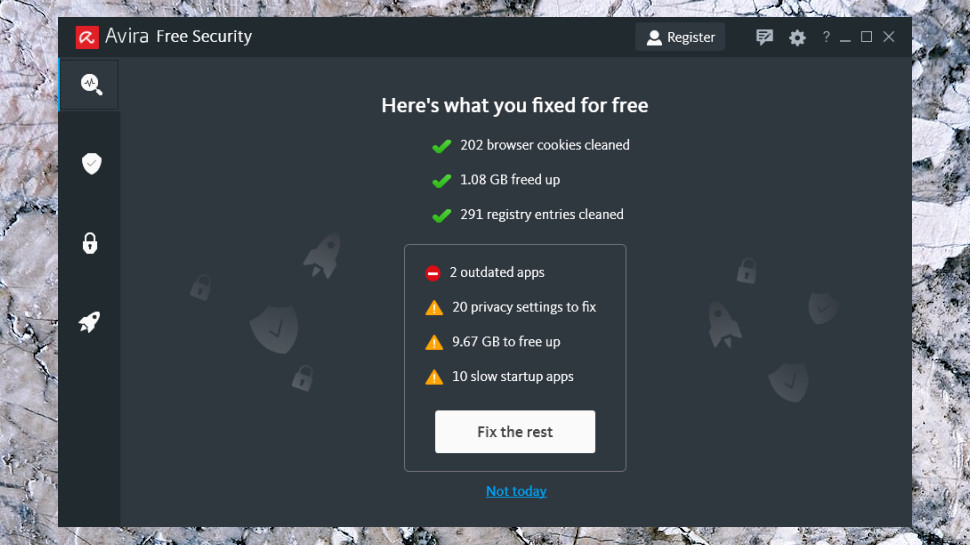
Missing features
There are some catches, too. Avira Free doesn't include automatic scanning of email attachments, or block internet threats at the network level (you're covered by browser extensions only.) These are layers of protection you'll get with competitors like Avast Free, although Avira should still detect any threats if they're launched or when you're running scans.
The free package is also missing Avira's enhanced ransomware protection for the very latest, evolving threats. It'll still detect existing dangers and many others, but you're not getting the same level of security as paying customers.
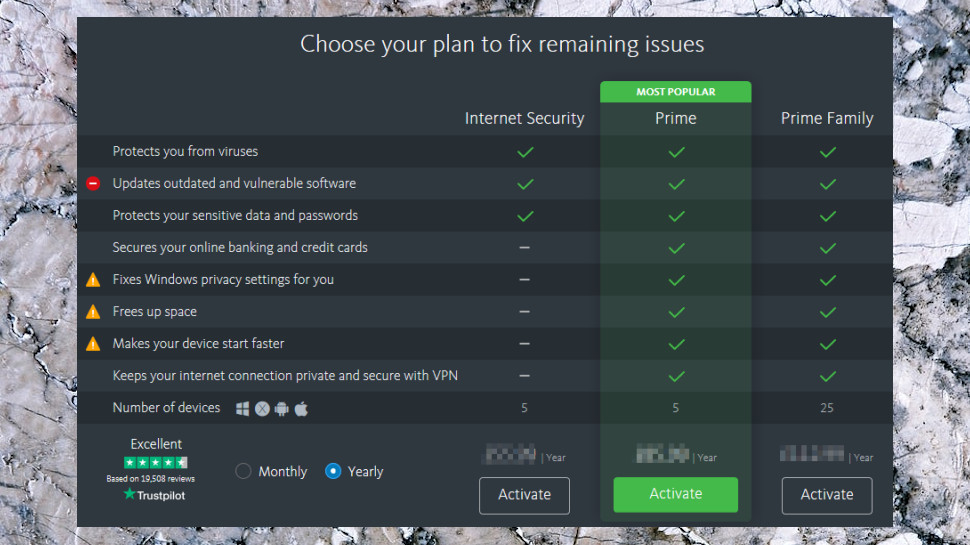
Some of Avira's bonus features are limited, too, and mostly work as an ad for the full version. When we ran a smart scan, for instance, Avira Free Security reports a bunch of issues, but most of these can't be fixed unless you upgrade.
The Driver Updater also does its best to lure you in. The feature isn't marked as premium only, you can run a scan, and if it finds outdated drivers, you're presented with a simple 'Update all' button. But click it, and you're told you'll have to buy a commercial Avira plan, first.
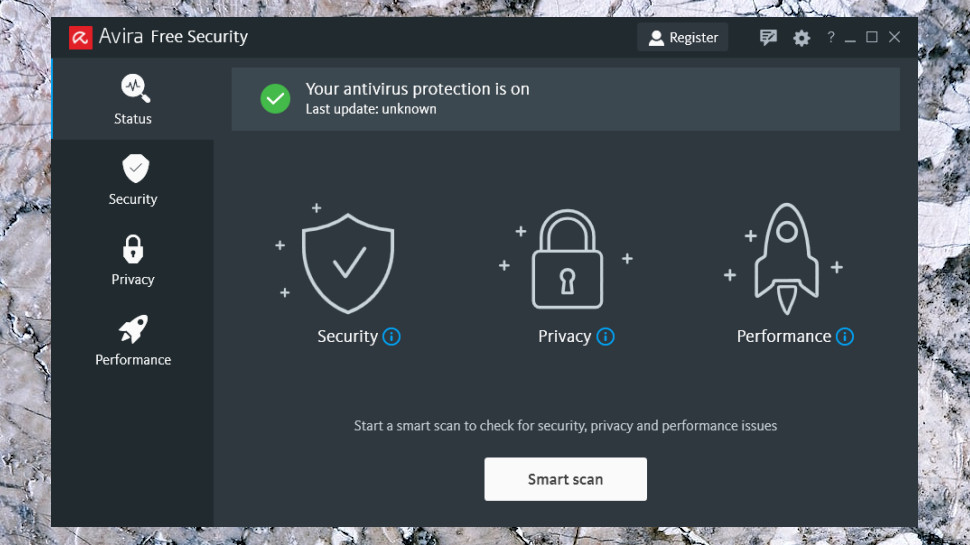
Interface
Avira Free Security is easier to use than the previous edition. The old jumble of disconnected tools has been replaced by a far more integrated suite, with a sleek and straightforward interface.
Basic operations are simple. For example, you can run a Smart Scan (checking for malware, privacy and performance issues) immediately, or clicking Security in the left-hand sidebar gives you options to run a full system scan, define a custom scan to check whatever you need, or schedule a scan to run automatically.
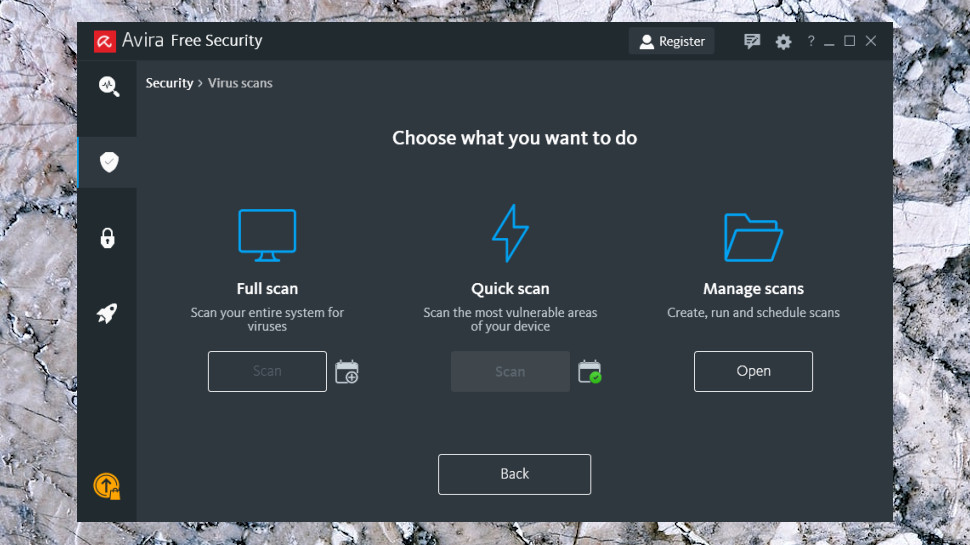
Other buttons give you access to quarantined files, system logs, and a handful of Settings.
Despite all the options, there's less power than you might expect, and most of these areas can be safely ignored. For example, clicking Protection Options displays icons for four security areas, but three aren't included with the free build (Web, Email, Ransomware.) And if you think the Firewall button looks promising, 'fraid not; it's just another way to turn the Windows firewall on or off, or open its settings.
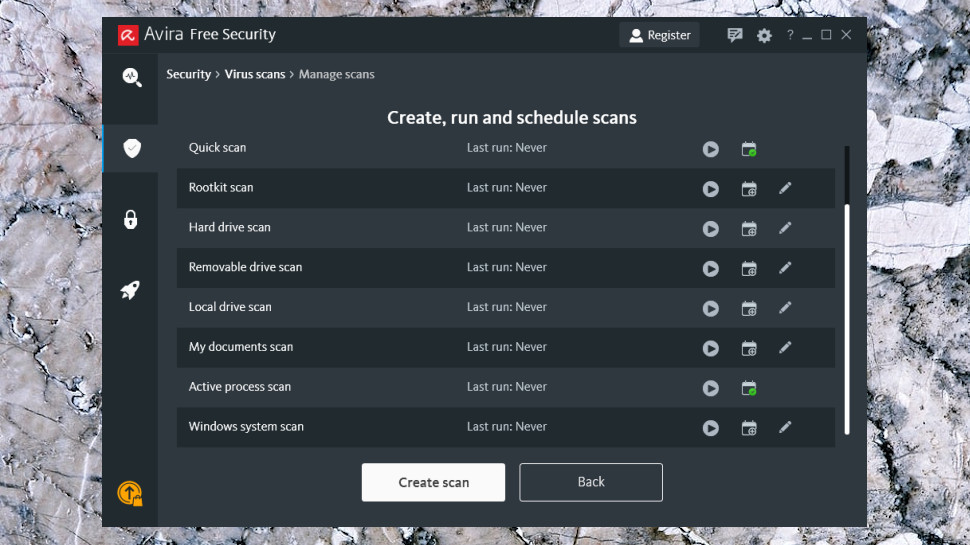
Features
Avira Free Security scores well for its scanning options. Although the Quick, Full and Custom scans most easily visible, there are preset scans to check running processes, the Documents folder, your local drives, removable drives and more, and you can also build new custom scans of your own.
Avira Free Security doesn't include the company's full-strength web protection to block malicious links; that's reserved for the commercial Pro version. Avira's Browser Safety and SafeSearch browser extensions offer reasonable protection, though, highlighting dangerous results in your search results and blocking access to known malicious sites. If you're not using the extensions, you won't get the same protection, although Avira should still pick up known threats if they attempt to launch or they're opened by some other app.
The big testing labs give Avira mid-range results at best right now, and we also had some issues in our own tests (check the Antivirus Pro review above for more.)
Once you've finished playing around with the antivirus, Avira Free Security's panels give you easy access to several other tools. Some of these are worth having - a decent Password Manager, the file shredder - but as we've discussed, others are limited, and require paid upgrades to be really useful.
Forget about the extras, then - Avira Free Security's core protection is what really counts. The lack of system-wide URL filtering is a concern, but on balance, Avira Free Security still does a capable job of keeping you safe.
- We've also highlighted the best antivirus software
from TechRadar - All the latest technology news https://ift.tt/3seCcur


No comments:
Post a Comment